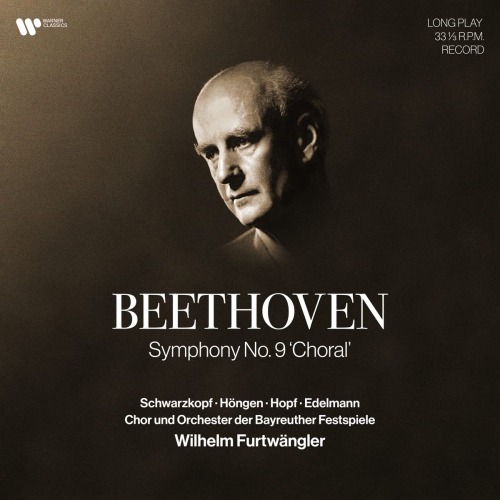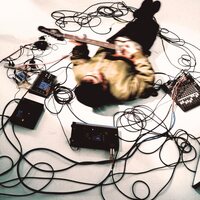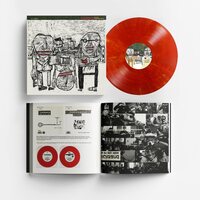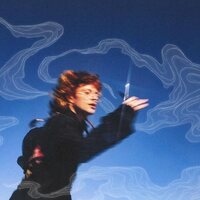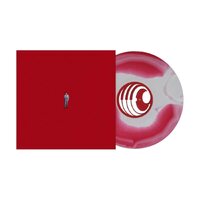Though Furtwängler conducted the Ninth more than 90 times between 1913 and 1954, he generally reserved it for special occasions. None was more special, musically or politically, than the re-opening of the Bayreuth Festival in 1951 - not least because of Wagner's own influence on the performing history of the Ninth. Premiered in Vienna in 1824, the Ninth was the work which finally rendered the modern conductor necessary: not so much because of the finale but because of the first movement where, as Sir Donald Tovey puts it, 'the broadest and most spacious processes sit side by side with the tersest and most sharply uttered statements'. As a young lad of 19, Wagner made a two-piano version of the Ninth out of frustration at the inability of contemporary musicians adequately to perform the work. It was the French conductor François Habeneck who initiated the breakthrough. When Wagner heard him conduct the Ninth in Paris in 1839, it was a revelation. Far from gabbling the first movement, turning it into a rag-bag of uncoordinated themelets, Habeneck's meticulously rehearsed players sang it over a continuously modified pulse. This was to be Wagner's way and Furtwängler's: a flexibly conceived discourse attentive to every nuance of Beethoven's elaborately inflected text. In 1951, Bayreuth clearly wanted the Ninth to be conducted by the work's greatest exponent, but Furtwängler, not uncharacteristically, was racked by indecision. As the minutes of the Association of the Friends of Bayreuth reveal, he said 'yes' three times, 'no' five times and only finally agreed to appear after receiving assurances that the new Bayreuth was going to be 'Richard Wagner's Bayreuth and not Herr von Karajan's'.He gave one of the most incandescent and furiously sublimated readings of the immense work. The record was there. What he fixed was a mystical moment in the history of the West.
Install our app to receive notifications when new upcoming releases are added.

Recommended equipment and accessories
-
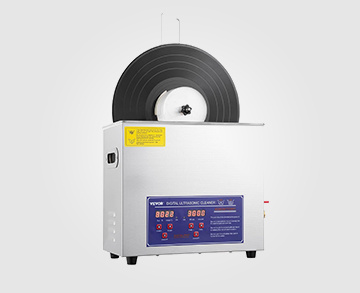
Vevor Ultrasonic Cleaner
Thoroughly clean and restore your vinyl records, removing dust, dirt, and grime from every groove without damaging the surface
-
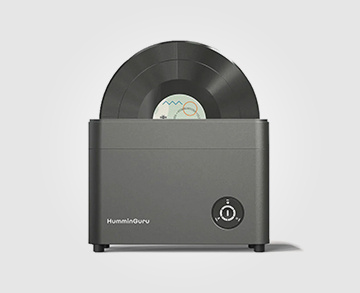
HumminGuru: Ultrasonic Vinyl Record Cleaner
Advanced ultrasonic technology with customizable cleaning cycles and a large tank capacity to thoroughly remove dust, dirt, and contaminants
-

Nagaoka MP-110H Cartridge
Features a high-quality elliptical stylus that provides excellent tracking and minimizes distortion, delivering a detailed sound reproduction with an output voltage of 5.0 mV
-

Vinyl Care - Top Picks
A selection of accesories to keep your turntable equipment & vinyl records in the best shape
-

Pro-Ject Debut Carbon EVO
Featuring a one-piece carbon fiber tonearm, precision-tuned motor, and a heavy steel platter with TPE damping, it ensures superior stability and sound quality.
Featured Upcoming Vinyl
-

Kreator Krushers Of The World (Red)
Nuclear Blast
January 16, 2026 -

The Paper Kites If You Go There, I Hope You Find It (Rust)
Nettwerk Records
January 23, 2026 -

Chet Faker A Love for Strangers
Bmg
February 13, 2026 -

Peter Criss Peter Criss
Flatiron Recordings
December 19, 2025 -

Megadeth Megadeth [2xLP]
Frontiers New Recordings Physical Only
January 23, 2026 -

Paul Mccartney's Wings WOnderful Christmastime / Rudolph The Red-Nosed Reggae
Lawson Ent
December 19, 2025 -

Elles Bailey Can't Take My Story Away (Bone)
Cooking Vinyl
January 16, 2026 -

Quicksand Manic Compression (Deluxe; Book)
Iodine Recordings
February 13, 2026 -

Cavetown Running with Scissors
Futures Music Group
January 16, 2026 -

Nala Sinephro The Smashing Machine Soundtrack
Warp Records
March 13, 2026 -

Charlie Puth Whatever's Clever! (Amazon Exclusive)
Atlantic
March 6, 2026 -

Annabelle Chairlegs Waking Up
TODO
January 30, 2026 -

Tyler Ballgame For The First Time, Again
Rough Trade
January 30, 2026 -

Confessor Unraveled
Svart Records
January 23, 2026
